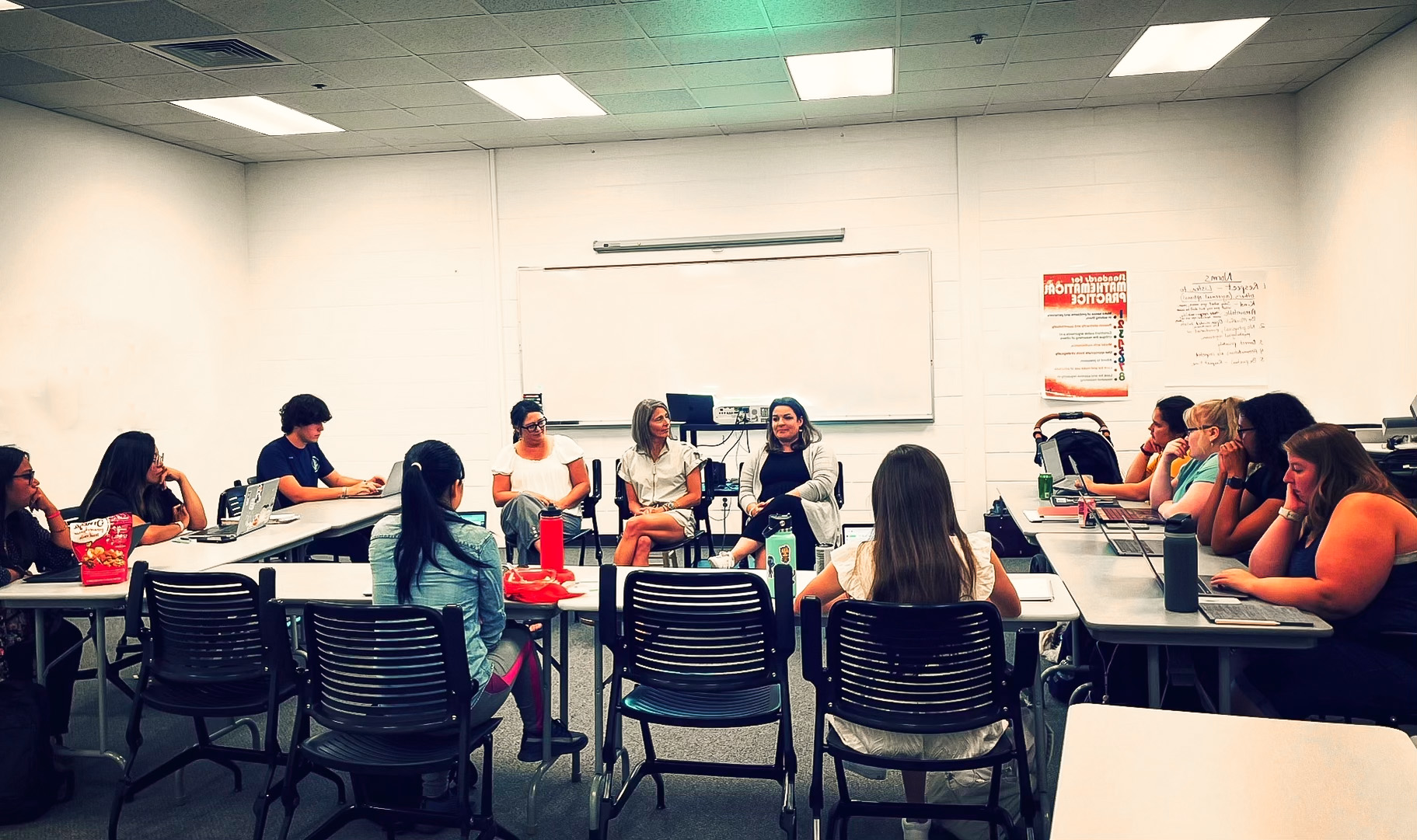
How Idaho’s Gem Innovation Schools Are Keeping Learning Going During COVID-19
by Alan Gottlieb
Originally Published on the Thomas B. Fordham Institute’s Flypaper Blog on 4-16-2020
In these uncertain days, with many brick-and-mortar schools shuttered indefinitely, one of Idaho’s leaders in online education has moved in a deliberate and intelligent fashion to transition its brick-and-mortar-based students to online learning.
That’s because the leaders of Gem Prep, a growing network of three (soon to be four) physical charter schools and a statewide online charter school, collectively serving about 1,800 students, understand that there are key fundamental differences between learning online and learning in person within the four walls of a classroom.
Gem Prep, which operates on a college preparatory model, is sharing its online expertise with other charter schools across the nation. Laurie Wolfe, the network’s Chief Academic Officer, said in a recent interview with Bluum that she has connected to other charters schools through the New Schools Venture Fund and the Charter School Growth Fund, two national organizations that fund and support charter school growth and innovation.
Gem’s advice has ranged from the logistical—how to take attendance online, or help families connect to resources for discounted Internet—to the nuts and bolts of online learning—how to manage and deliver a lesson via the Zoom video platform.
“It’s a very different thing to sit in a Zoom meeting than to use it to actually teach students,” Laurie said. “Because we trained our online teachers over the years, we knew how to do that.”
In a recent post on the website Medium, Gem Prep CEO Jason Bransford and Wolfe shared some tips on how to prepare teachers and students alike for the transition to home-based online learning. It’s well worth a read.
There are a couple of main takeaways, though, that embody Gem Prep’s overall approach to learning, be it digital, blended, or physical-classroom-based. First, educators need specific training to teach effectively online. Second, parents who make the choice to enroll their students in online schools know they will play a major role in their children’s education. Under current circumstances, not all parents will be prepared to take on this role, especially if they’re working from home full-time as well.
The bottom line, Laurie said, is that teachers and parents alike need to scale back expectations and slow down. “You won’t get through the same amount of curriculum or be able to do as many activities. It’s a scaled back version of school,” she said.
It’s also important that schools, teachers, and parents are clear about top priorities. For Gem Prep, literacy remains the major focus. Beyond that, helping ensure that kids don’t backslide is key. “We want our students to maintain or gain on skills. But we have to balance that against the fact that parents are working from home, or maybe lost a job, or they’re sick. So, we have to have a lot of grace for everyone.”
Teachers whose experience has been exclusively in brick-and-mortar schools quickly come to appreciate how different it is to teach online, Laurie said. “You can’t walk around the classroom and check on student work. You have to check for understanding in different ways. These are big shifts from a face-to-face teaching environment. It’s a big challenge, learning all this new tech and leveraging it in a high-quality way to reach kids socioemotionally and academically.”
This kind of deliberate, well-thought-out approach is what has helped Gem Prep stand out since its first school launched—online—in 2004. It’s what led the charter network to venture into physical schools beginning in 2014 in Pocatello. Since then, schools have launched in Nampa in 2016, and in Meridian last year. A new school, Meridian North, will open next fall, to take some pressure off the 500-student waiting list for the first Meridian campus. Beyond that, Gem Prep plans to open two additional new schools within the next five years.
All Gem Prep schools will eventually be K–12. Currently, only the online school operates a high school, and the other schools are K–8. But schools will be launching ninth grade next year and adding a grade per year.
Despite its online roots, Gem Prep deemphasizes online learning for its youngest brick-and-mortar students. As kids move into middle school, Gem Prep takes advantage of rich online classes available through the Idaho Digital Learning Academy to offer electives that most small, rural schools don’t have the resources to run.
For example, a student interested in digital photography can’t take that in a physical Gem Prep school, but can take a high-quality, state-approved elective online digital photography course. The same goes for some “really advanced courses, like high-level math,” CEO Jason Bransford said.
Gem Prep wants its brick-and-mortar school populations to mirror the demographics of the communities where they are located. Across the physical schools, Jason said, about 50 percent of students qualify for subsidized school lunches. About 20 percent are students of color, and 10 percent qualify for special education services.
One major emphasis of Gem Prep schools is preparing students for college, especially the 77 percent of the network’s students who fall into one or more of the state’s designated high-risk categories: low-income, minority, special education, and parents who didn’t attend college.
“There is a lot of research that shows those factors can be barriers to success in college,” Jason said. “So we identify the needs of those kids and work closely with them to help break down those success barriers.”
The results are striking. At Gem Prep’s online schools, 92.5 percent of students are on track to graduate. That’s well above the overall state average, and even further above other virtual schools. One reason for the success, Jason said, is that more than half of Gem Prep middle school students take high school-level courses online. This means that they can start to take dual-credit college courses early in their high school years.
Gem Prep wants 60 percent of its brick-and-mortar high school students to graduate with an associate degree, as well as a high school diploma. This, Jason said, will set them up financially for an affordable college education, if they choose to continue toward a bachelor’s.
Gem Prep parent Nicole Hagman has had her three children—a son in seventh grade, a daughter in fifth, and a son in second—in the Meridian school since the fall of 2018. The family moved to Idaho from Kansas City, and after a year in the local district schools, decided Gem Prep was a better fit.
Small middle school class sizes were one major draw, Nicole said. But even more important, “Gem Prep focuses on educating each child where they are. If any are behind, getting them up to grade level or beyond, and if they’re beyond grade level, just letting them go at their own pace, as fast and far as they can.”
Nicole also substitute teaches at Gem Prep on average four days each month. She said the rock-solid system and curriculum make it easy for her to come into a classroom and plug in seamlessly. Because students know how to direct their own learning, “I can add to it or answer questions students have. But mostly I can just let them go at their own pace.”
–




